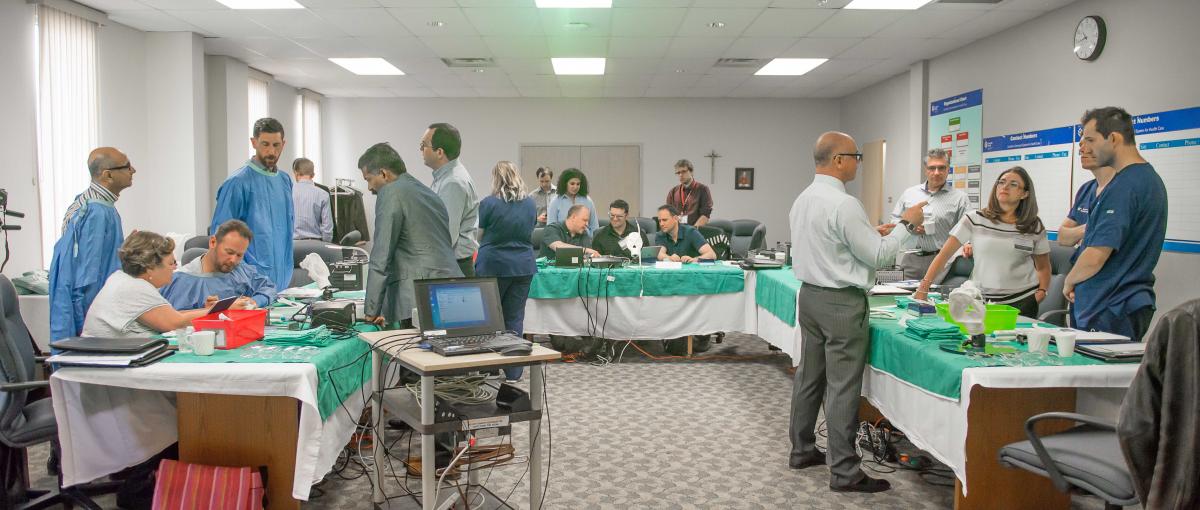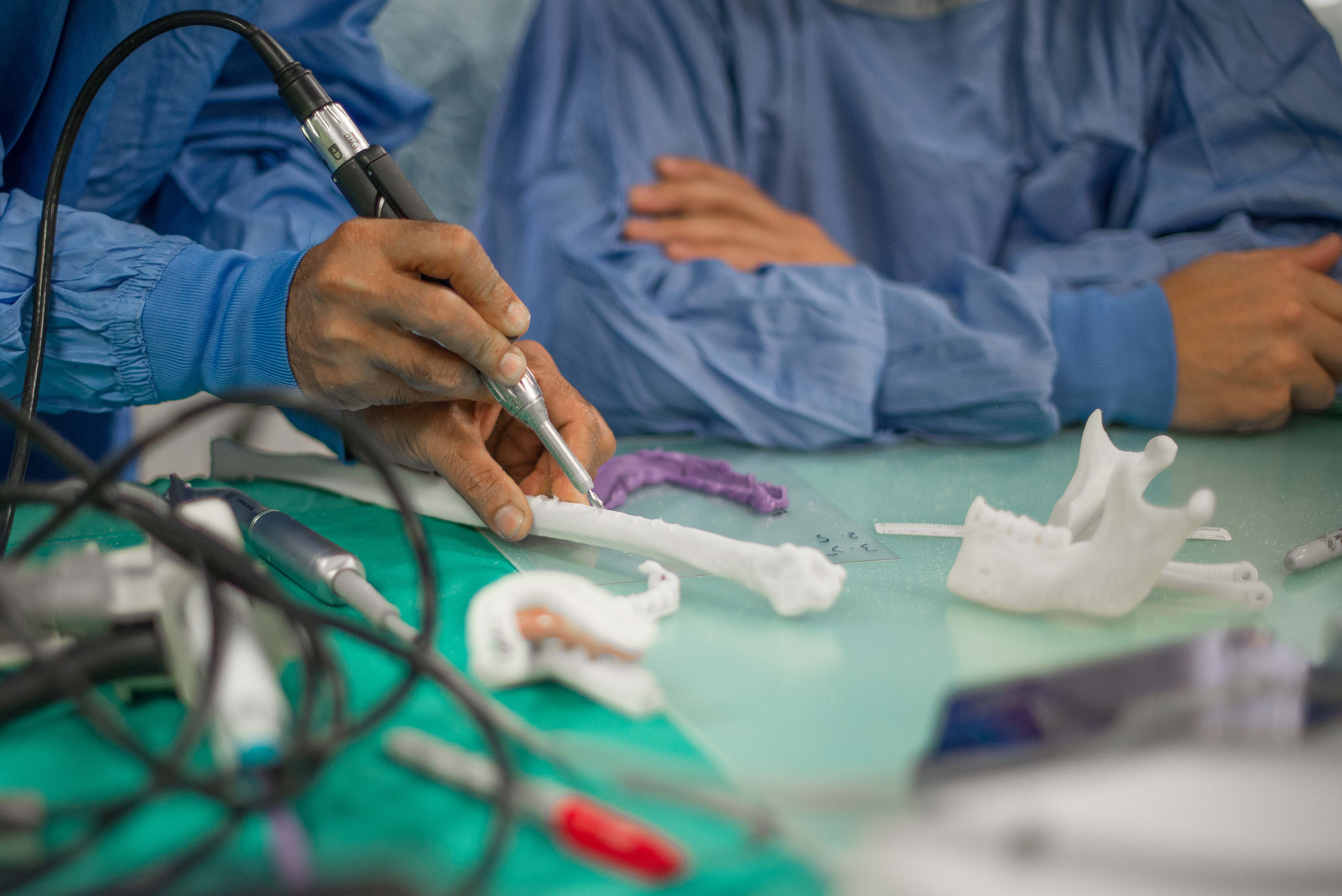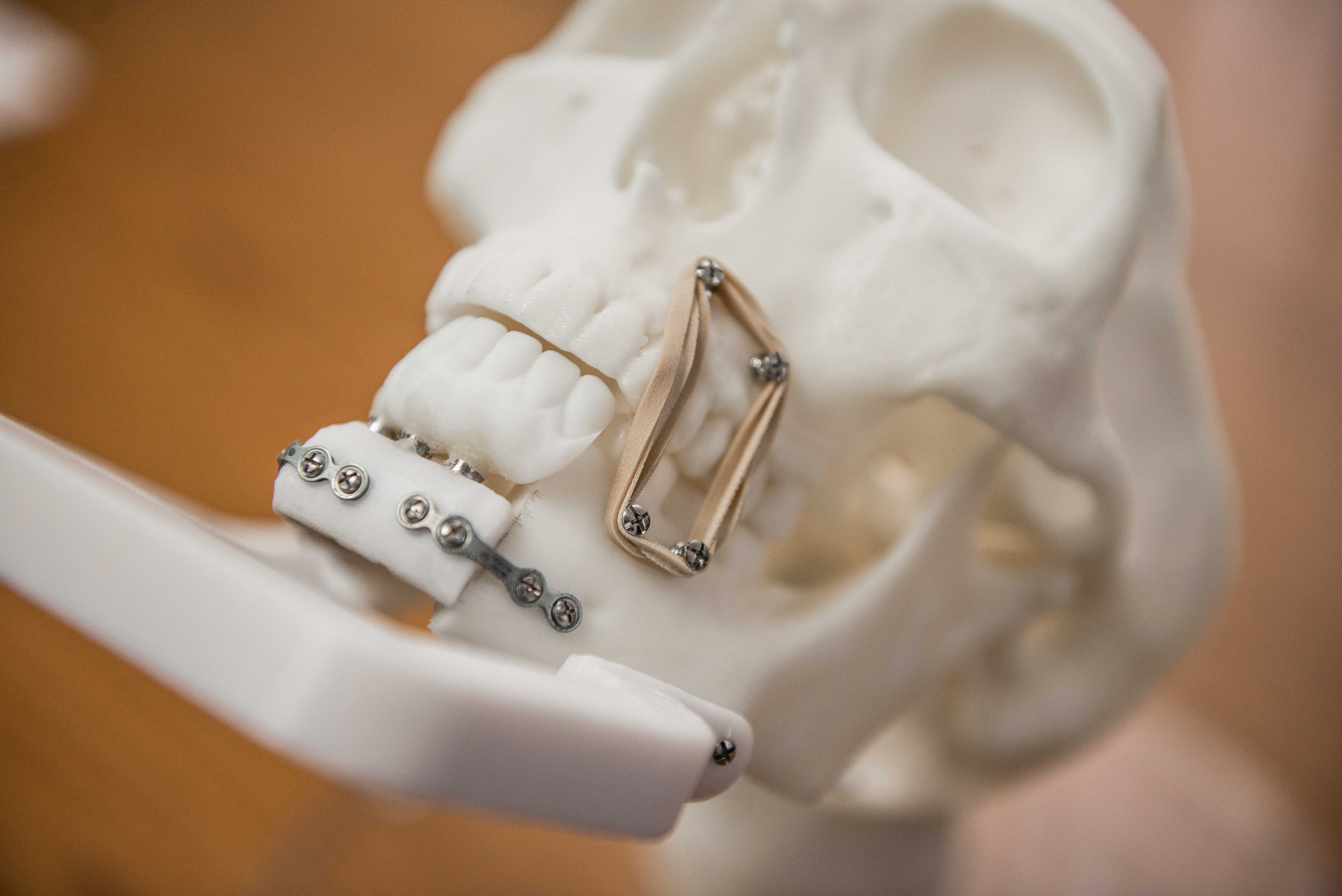Rebuilding jaws for function and dignity
The Institute for Reconstructive Sciences in Medicine is teaching surgeons and prosthodontists

December 5, 2017
By Kylie Robertson, Covenant Health
Cancer changes things: outlooks, plans, lifestyles, dignity, lives and social status. This is especially true of head and neck cancers, which can dramatically change how people meet some of their most basic human needs like eating and drinking.
Thanks to the world-renowned Institute for Reconstructive Sciences in Medicine (iRSM), these patients now have the most advanced and effective techniques to regain what was once threatened to be lost forever: their face, their voice, their ability to function and their dignity.
“At times the treatment for the disease causes damage that the patients have to live with for the rest of their lives,” says Dr. Suresh Nayar. “Just imagine if half of your top jaw is missing. You can’t eat, you can’t speak, you can’t go out because you feel like you look like a monster.”
On May 5 and 6, 2017, iRSM hosted doctors from three prestigious institutions from around the world to receive hands-on training in the latest techniques in jaw reconstruction and rehabilitation.

Dr. Christine Wallace is a maxillofacial prosthodontist from the University of Sydney. She came to the Misericordia Community Hospital and iRSM to receive training that simply isn’t available in Australia. “There are four centres around the world that do this kind of work, but this specific training is offered only in Edmonton,” she says. “What is offered here you can’t mimic or imitate anywhere else in the world.”
Beyond the information being taught, the hands-on manner in which it is delivered gives extra value to workshop attendees. “This type of training is unique. To be able not only to hear and see pictures, but to actually do some hands-on training, is invaluable for us,” says Dr. Peter Dziegielewski, a head and neck surgeon from the University of Florida. “Most surgeons learn best by doing, and this is the kind of opportunity that iRSM provides for us. This type of training is really unparalleled.”
Patient outcomes and treatment times are also dramatically improved using the techniques taught at this workshop. Dr. Rob Hart, a head and neck surgeon from Dalhousie University in Halifax, Nova Scotia, notes, “People will get their teeth much quicker. With this technique, we’ll get people a set of teeth in five to six months—and probably with better results—whereas it can be up to two to three years using the older technique.”
Suresh also knows the potential for improvement in quality of life for patients if their doctors have the knowledge iRSM has cultivated: “We want the whole world and this group of patients to benefit from the innovative techniques that we’re doing; we don’t want to keep it amongst ourselves.”
“If someone else can benefit from our techniques, why not give it to them, why not teach them?”
Dr. Suresh Nayar
iRSM hosts these hands-on jaw reconstruction workshops once per year, for both local and international head and neck teams.
